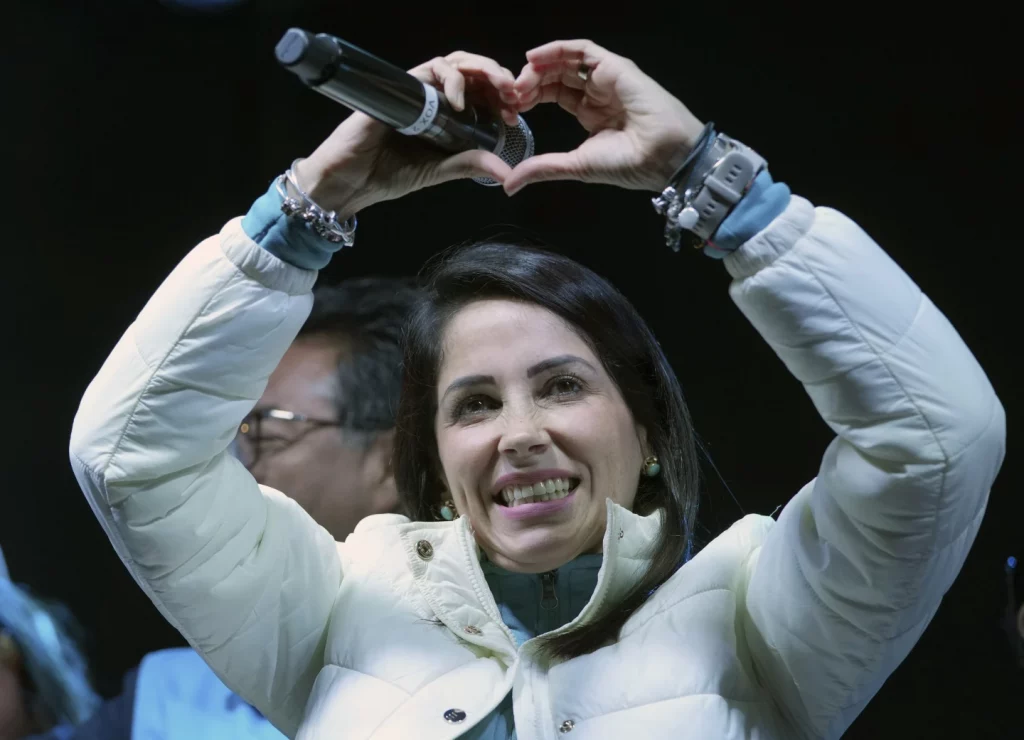Like the rest of the free world, Ecuadorian voters too seem to be a confused lot. They seem to be clueless about how to deal with drug cartels wreaking havoc with the country gunning down their opponents, corruption by politicians and seemingly endless cycle of violence, robberies and kidnappings. The country’s economy is in shambles compounded as it is by organised crimes and the COVID-19 pandemic. This is clear from the inconclusive results of the presidential election announced August 20. The elections were held in the backdrop of assassination in broad daylight of a presidential candidate and journalist-turned-politician Fernando Villavicencio on August 9 and a spate of killings of other politicians in the past few months.
The results showed Ecuador is once again ready to repose its trust in the Left rather than in conservatives, business tycoons or individuals pledging to root out corruption and mafia syndicates. Left-wing politician Luisa González is leading, securing 33 per cent votes against her close rival and businessman Daniel Noboa’s tally of 24 per cent. The two have emerged winners of the first round beating six rivals. González is a camp follower of former Leftist President Rafael Correa. She has promised to revive her mentor’s social programmes. It is interesting that though Ecuadorians have rallied behind González, they have demonstrated clear reservation for the Left candidate because of alleged corruption by former President Correa that had forced him to flee the country even after having implemented social welfare schemes. This has pitted González against the son of one of the country’s richest men, Noboa, in a runoff presidential vote to be held in October. According to Ecuador’s electoral rules, if no candidate gets more than 50 per cent of the vote, or 40 per cent with a 10-point lead, a runoff election will be held.
The voting pattern indicates that the people of Ecuador are not convinced any individual without solid organisational backing or huge monetary support can take on the drug cartels and their benefactors in the political establishments. This is why fellow investigative journalist Christian Zurita, replacing the crusading anti-corruption candidate Fernando Villavicencio, who had fallen to assassins’ bullets, managed to secure only 16 per cent votes.
On the other hand, González, a virtual unknown before the election, is seen as the natural successor to Correa, the Leftist, populist President who governed the country from 2007 to 2017. As the candidate for the Revolución Ciudadana party, she had said Correa would be her adviser if she was elected. Correa lives in exile in Belgium and was sentenced to eight years in prison for corruption in 2020 in absentia. The election was necessitated by the decision of the current President Guillermo Lasso to dissolve the national assembly and call early elections so as to avoid impeachment for his own alleged corruption.
The extent to which the electoral process of Ecuador has been vitiated can be gauged from the fact that hackers were in operation from diverse countries to prevent electronic voting. Under Ecuador’s laws exercising franchise is mandatory for all citizens who will face punishment for not voting. The president of the national electoral council, Diana Atamaint said cyber-attacks targeting the electronic voting system were engineered from countries such as Russia, Ukraine, China, India, Pakistan, Indonesia and Bangladesh. This geographical reach clearly indicates the power and influence of the drug cartels that have virtually taken over most of Central and South America. Indians participating in these hackings should ring an alarm bell for the government.
The unprecedented attacks also show to what extent drug cartels can go to manipulate the electoral outcome of Ecuador. The country was a haven of peace even till 2017, though geographically it is wedged between Colombia and Peru, two of the world’s biggest producers of cocaine.
A deadly escalation of violence in recent years, fuelled by a cocaine boom in the region, has seen criminal gangs alter the landscape in Ecuador as they engage in high-level graft, extort businesses, overrun prisons, and murder anyone who gets in their way. The violence and lack of economic prospects have led to many Ecuadorians opting to leave the country – some to its neighbours, others to the United States. Over half of Ecuador’s workforce is in the informal economy, meaning that millions of people do not have a contract and benefit packages to rely on in hard times.
Though the Left candidate has been able to capture the imagination of over one-third of the populace, the new voice of Noboa may spring surprises in the October runoff poll as he represents an electorate looking for a new political presence with a good academic background. Undoubtedly, education brings great advantages for those who wish to rule but that in itself may not complete the circle in strife torn countries like Ecuador or Syria.
